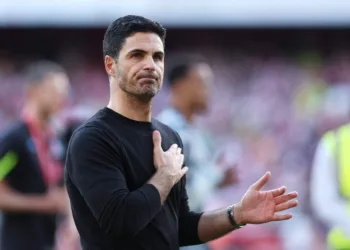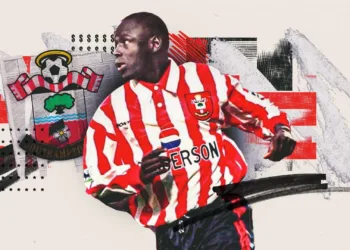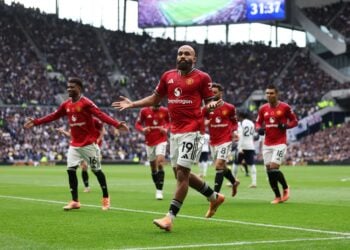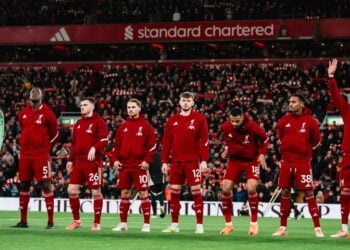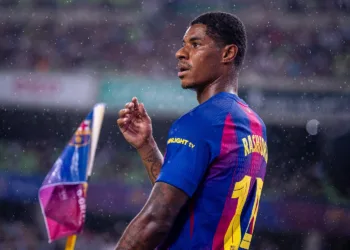In a stunning reversal that sends shockwaves through European football, Barcelona has decided not to continue as part of the Superleague project after 4.5 years of unwavering support. This dramatic shift leaves their eternal rivals Real Madrid as the sole remaining advocate of what was once football’s most controversial reform proposal, marking a watershed moment in the sport’s political landscape.
Table of Contents
The Collapse of Football’s Most Ambitious Revolution
The Super League saga began with explosive controversy in April 2021, when twelve elite European clubs announced their intention to break away from UEFA’s established structure. After a virulent public reaction, the founding members were reduced to just three clubs: Juventus, Real Madrid and Barcelona. The project promised financial security and guaranteed participation for Europe’s biggest names, but it sparked fan protests, government intervention, and fierce institutional resistance.

Barcelona’s commitment to the breakaway league had been absolute. Through years of legal battles, public criticism, and mounting pressure, the Catalan giants stood firm alongside Real Madrid and Juventus. Juventus has since left, leaving Barcelona and Real Madrid to forge ahead with the project—until now.
| Timeline of Super League Defections |
|---|
| April 2021 – 12 founding clubs announce Super League |
| April 2021 – 9 clubs withdraw after 48 hours |
| 2023 – Juventus exits the project |
| October 2025 – Barcelona announces departure |
| Current Status – Real Madrid remains alone |
Why Barcelona Changed Course: The UEFA Reconciliation
The driving force behind Barcelona’s dramatic about-face centers on a repaired relationship with European football’s governing body. UEFA has altered the format of the Champions League and ensured more money for the ‘biggest’ teams in the competition, something Barcelona are happy with. This financial restructuring addresses one of Barcelona’s primary grievances that initially pushed them toward the Super League alternative.
President Joan Laporta, who had been one of the Super League’s most vocal advocates, has now orchestrated a diplomatic breakthrough. An improvement in relations between Barcelona and UEFA is exemplified by exchanges between presidents Joan Laporta and Aleksander Ceferin. The warming relationship signals a fundamental shift in Barcelona’s strategic thinking about European football’s future.

The financial incentives cannot be overstated. UEFA’s reformed Champions League format, which expanded to 36 teams and introduced a new league phase structure, delivers substantially increased revenue to historically successful clubs. For Barcelona, facing ongoing financial challenges despite recent improvements, this guaranteed income stream proves more attractive than the uncertain future of an unproven Super League.
Real Madrid Stands Defiant in Isolation
While Barcelona retreats, Real Madrid president Florentino Pérez remains committed to his vision. The Spanish giant’s unwavering stance now places them in complete isolation, a position that raises serious questions about the project’s viability. Barcelona no longer see the need to pursue a new competition, and even if the European Courts grant The Superleague the right to go ahead with it, this will not change Barcelona’s stance.
| Super League Founding Members | Current Status |
|---|---|
| Real Madrid | Still committed |
| Barcelona | Exiting |
| Juventus | Withdrawn |
| Manchester United | Withdrawn (2021) |
| Manchester City | Withdrawn (2021) |
| Liverpool | Withdrawn (2021) |
| Arsenal | Withdrawn (2021) |
| Chelsea | Withdrawn (2021) |
| Tottenham | Withdrawn (2021) |
| Inter Milan | Withdrawn (2021) |
| AC Milan | Withdrawn (2021) |
| Atlético Madrid | Withdrawn (2021) |
The financial infrastructure supporting the Super League faces its own existential crisis. The organizing company behind the Super League, A22, is in danger of bankruptcy. This financial vulnerability compounds the project’s political isolation, creating a perfect storm that threatens to sink Florentino Pérez’s grand vision entirely.
A22: The Company Drowning in Debt
The Super League’s operational backbone shows alarming signs of collapse. A22 Sports Management, the company responsible for organizing and promoting the breakaway competition, confronts severe financial distress. Without Barcelona’s support and financial backing, the company’s already precarious position deteriorates further. A22 CEO Bernd Reichart has served as the public face of the Super League alongside Laporta and Pérez, presenting reformed formats and defending the project’s legitimacy.
The company’s revenue stream depended heavily on continued commitment from Barcelona and Real Madrid. With Barcelona’s withdrawal, A22 faces an uncertain future, potentially accelerating toward bankruptcy without the financial lifeline provided by Spain’s most powerful clubs.
The Wider Implications: A Clasico Cold War?
Beyond the Super League’s fate lies a potentially more significant development: the fracturing of Spanish football’s most powerful alliance. This could be the beginning of a wider split between Barcelona and Real Madrid. For years, the two clubs have maintained aligned interests, cooperating on matters ranging from broadcasting rights to European competition reform.
Last year at Real Madrid’s General Assembly, Florentino Pérez called on ‘big clubs like Real Madrid and Barcelona to help each other’, while their interests have been aligned since The Superleague. However, this cooperative spirit appears to be evaporating. Real Madrid have recently promised to pursue maximum punishment for Barcelona with regard to the ongoing Negreira case, signaling a hardening of positions between the rivals.

The Negreira case, involving alleged payments to a former refereeing official, represents another flashpoint in Spanish football. Real Madrid’s aggressive stance suggests they view Barcelona’s Super League withdrawal as a betrayal worthy of retaliation through other channels.
What This Means for European Football
Barcelona’s departure effectively ends the Super League as originally conceived. A single club, regardless of its prestige and power, cannot sustain a continental breakaway competition. Real Madrid’s isolation leaves several possible scenarios:
The Complete Collapse: Without Barcelona’s support, Real Madrid may finally abandon the project, accepting UEFA’s reformed Champions League as the definitive European competition framework.
The Stubborn Stand: Florentino Pérez could continue pushing forward, hoping to eventually convince other clubs to join once legal clarity emerges from ongoing court cases.
The Hybrid Compromise: Real Madrid might negotiate a middle ground with UEFA, incorporating some Super League concepts into the existing Champions League structure.
The Legal Landscape
The Super League saga continues in European courts, where rulings on competition law and UEFA’s regulatory authority remain pending. These legal decisions could theoretically revive the project, though Barcelona’s position suggests that even favorable court rulings won’t change their strategic direction. The legal battles, initially seen as the Super League’s path to legitimacy, now appear increasingly irrelevant to its practical prospects.
Barcelona’s exit from the Super League represents more than a corporate decision—it symbolizes European football’s rejection of radical disruption in favor of evolutionary reform. The clubs that once championed revolution now embrace UEFA’s established structure, improved and reformed to address their financial concerns.

For Real Madrid, splendid isolation beckons. Florentino Pérez must decide whether to maintain his principled stand or accept reality and rejoin the European football mainstream. For Barcelona, reconciliation with UEFA offers financial security and competitive legitimacy, even as it strains their relationship with their greatest rivals.
The Super League, once threatening to reshape European football forever, now limps toward obscurity—a cautionary tale about the limits of elite power in the face of popular resistance and institutional resilience.
FAQs
Why did Barcelona decide to leave the Super League after supporting it for 4.5 years?
Barcelona decided to exit because UEFA reformed the Champions League format to provide more financial benefits to major clubs. The improved relationship between Barcelona president Joan Laporta and UEFA president Aleksander Ceferin, combined with guaranteed increased revenue from the restructured Champions League, eliminated Barcelona’s primary motivation for pursuing an alternative competition.
Is Real Madrid still committed to the Super League project?
Yes, Real Madrid remains committed to the Super League despite being the only founding member still supporting the project. President Florentino Pérez has not publicly wavered in his support, though Barcelona’s departure raises serious questions about the project’s future viability.
What happens to A22, the company organizing the Super League?
A22 Sports Management faces potential bankruptcy. The company has been losing money and relied on financial support from Barcelona and Real Madrid. With Barcelona’s withdrawal, A22’s financial situation becomes even more precarious, threatening its operational sustainability.
Will Barcelona and Real Madrid’s relationship suffer because of this decision?
The split over the Super League appears to be widening the rift between the two clubs. Real Madrid has already indicated it will pursue maximum punishment for Barcelona in the ongoing Negreira case, suggesting the cooperative relationship that characterized their Super League alliance is deteriorating.
Can the Super League still happen with just Real Madrid supporting it?
Practically speaking, no. A single club cannot create a competitive European super league. While Real Madrid may continue advocating for the concept and awaiting legal rulings, the Super League as originally envisioned requires multiple elite clubs to participate. Barcelona’s departure makes the project’s realization extremely unlikely.


